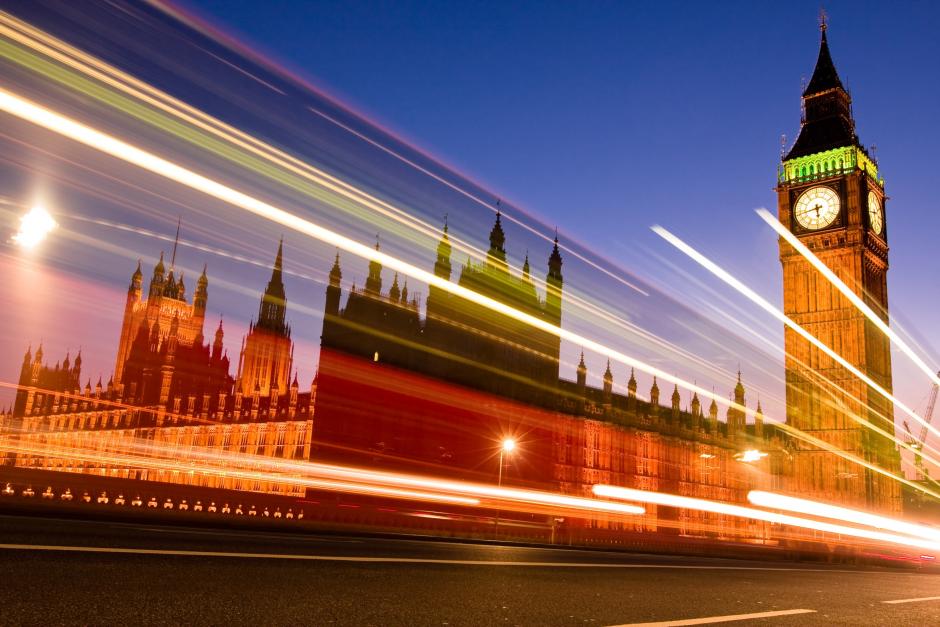Snooper's Charter returns as the Investigatory Powers Bill
The bill gets a facelift in the Queen's Speech, but proposes new powers over communications data


The Snoopers Charter is officially back, after plans to update communications data laws were introduced in the Queen's Speech today.
Full details of the proposed Investigatory Powers Bill have yet to be revealed, with the speech merely mentioning that "new legislation will modernise the law on communications data".
However, the Conservative party has previously tried to push through the Communications Data Bill that would have required ISPs and web firms to hold meta data on customer communications for at least a year, among other changes.
That bill had been repeatedly blocked by the Liberal Democrat party during the last administration's coalition, but now that the Tories have a majority, the changes are expected to be pushed through.
Lobbying group Big Brother Watch suggested there may be little difference between the Communciations Data Bill and the Investigatory Powers Bill other than the names, with CEO Renate Samson saying "it will be interesting to see whether the content has radically changed".
A report from the BBC reveals that the new bill would give police "the tools to keep you and your family safe" and would "address gaps" in existing laws that put "lives at risk" by not giving authorities access to such data.
Number 10 told the BBC that the bill would "address ongoing capability gaps that are severely degrading the ability of law enforcement and intelligence agencies to combat terrorism and other serious crime".
Sign up today and you will receive a free copy of our Future Focus 2025 report - the leading guidance on AI, cybersecurity and other IT challenges as per 700+ senior executives
"The legislation covers all investigatory powers including communications data, where the government has long maintained that the gap in capabilities is putting lives at risk," the spokesperson continued, adding the law would "enable the continuation of the targeting of terrorist communications and other capabilities".
A report in the Guardian suggested the Conservative government plans to extend the scope of the bill beyond the previous version by strengthening the security services' powers to intercept communications in bulk - the very sort of activity highlighted by Edward Snowden's NSA whistleblowing.
More criticism
The bill faces the same criticism as its predecessor. Big Brother Watch's Samson said that there's as yet been no evidence shown that "there's a gap in the capability" of authorities to access communications data.
"We are also yet to see any concrete evidence that access to communications data has, and indeed will, make the country safer," Samson said. "The only evidence we have is of numerous failures to make effective use of the data already available."
"Any new draft legislation must acknowledge that the bigger the haystacks the harder it will be to find the needles," Samson added.
Yesterday, 38 prominent legal experts published an open letter urging MPs to take care with the new law.
"We hope that MPs, especially those newly elected to the Commons, will take heed of our warning that surveillance powers must be subject to Parliamentary scrutiny and must be proportionate," Signatory Andrew Murray, professor of law at the London School of Economics, told IT Pro at the time.
The Open Rights Group is asking supporters to contact MPs, saying "the Conservative majority is tiny, and we have allies within the Tory party such as David Davis who has been outspoken in his opposition".
It has a tool here to help you contact your MP to send a message about the forthcoming bill.
"By highlighting failings in the previous Parliament we hope MPs will be aware of the risks of failings in Parliamentary scrutiny and will take steps to educate themselves in this area," Murray said.
Freelance journalist Nicole Kobie first started writing for ITPro in 2007, with bylines in New Scientist, Wired, PC Pro and many more.
Nicole the author of a book about the history of technology, The Long History of the Future.
-
 AWS just quietly increased EC2 Capacity Block prices – here's what you need to know
AWS just quietly increased EC2 Capacity Block prices – here's what you need to knowNews The AWS price increases mean booking GPU capacity in advance just got more expensive
-
 Accenture acquires Faculty, poaches CEO in bid to drive client AI adoption
Accenture acquires Faculty, poaches CEO in bid to drive client AI adoptionNews The Faculty acquisition will help Accenture streamline AI adoption processes
-
 EU lawmakers want to limit the use of ‘algorithmic management’ systems at work
EU lawmakers want to limit the use of ‘algorithmic management’ systems at workNews All workplace decisions should have human oversight and be transparent, fair, and safe, MEPs insist
-
 Data (Use and Access) Act comes into force
Data (Use and Access) Act comes into forcenews Organizations will be required to have an effective data protection complaints procedure and fulfil new requirements for online services that children are likely to use
-
 UK businesses patchy at complying with data privacy rules
UK businesses patchy at complying with data privacy rulesNews Companies need clear and well-defined data privacy strategies
-
 Data privacy professionals are severely underfunded – and it’s only going to get worse
Data privacy professionals are severely underfunded – and it’s only going to get worseNews European data privacy professionals say they're short of cash, short of skilled staff, and stressed
-
 Four years on, how's UK GDPR holding up?
Four years on, how's UK GDPR holding up?News While some SMBs are struggling, most have stepped up to the mark in terms of data governance policies
-
 Multicloud data protection and recovery
Multicloud data protection and recoverywhitepaper Data is the lifeblood of every modern business, but what happens when your data is gone?
-
 Intelligent data security and management
Intelligent data security and managementwhitepaper What will you do when ransomware hits you?
-
 How to extend zero trust to your cloud workloads
How to extend zero trust to your cloud workloadsWhitepaper Implement zero trust-based security across your entire ecosystem
